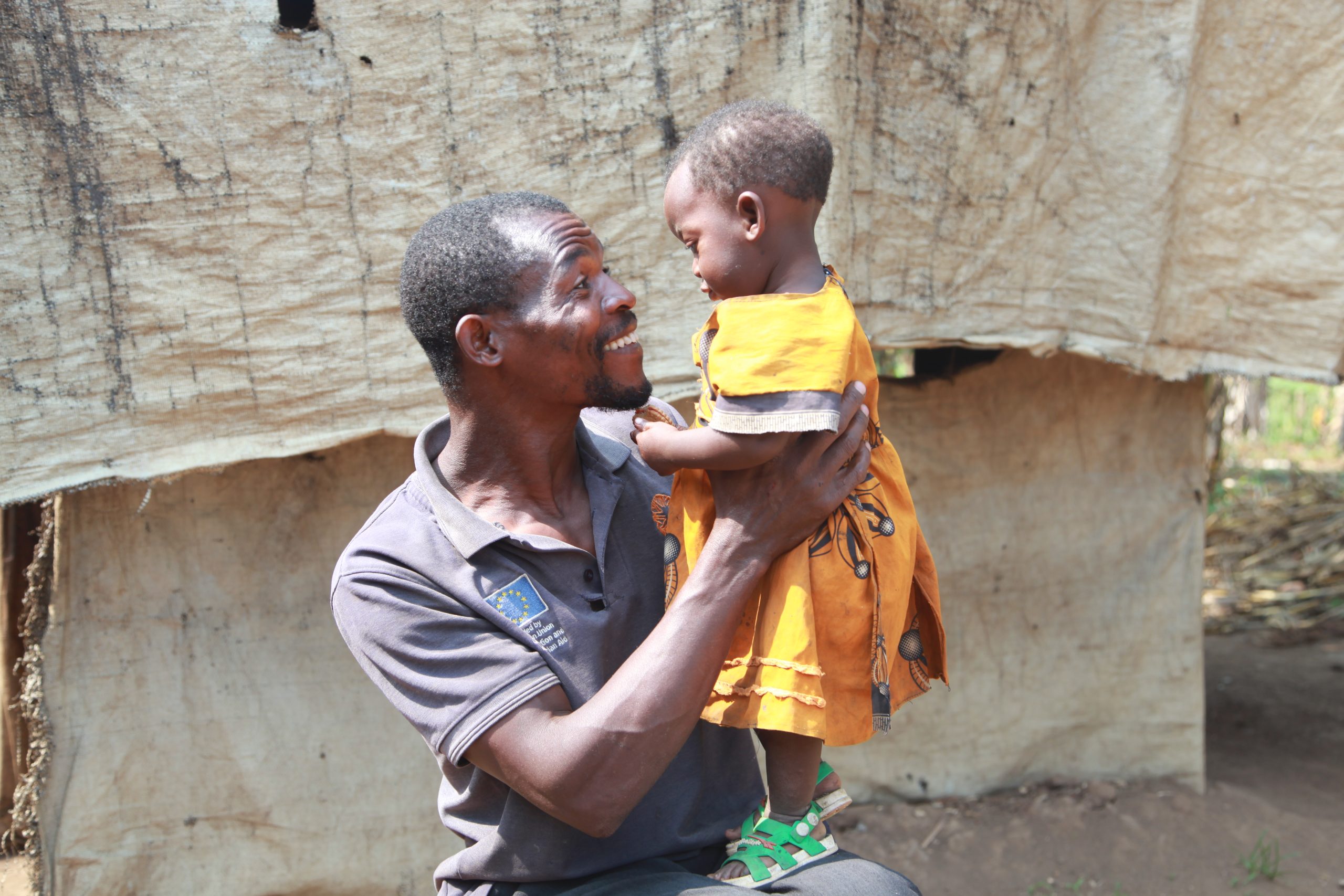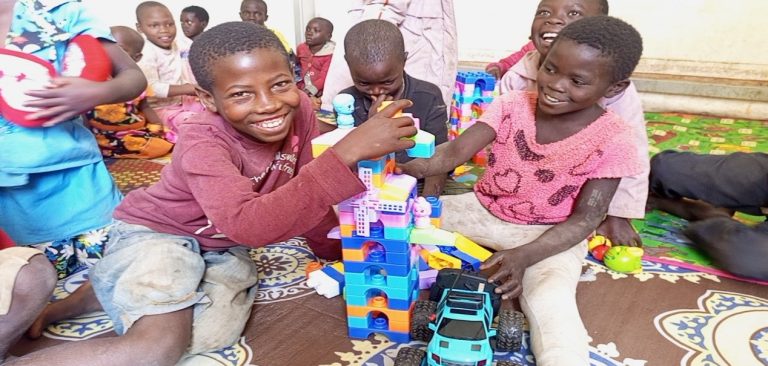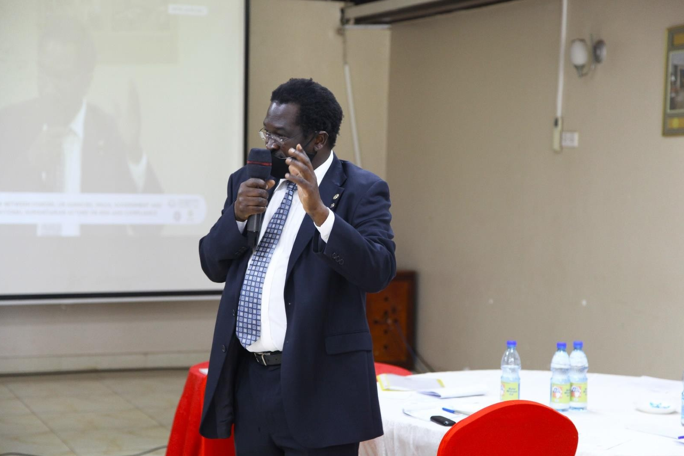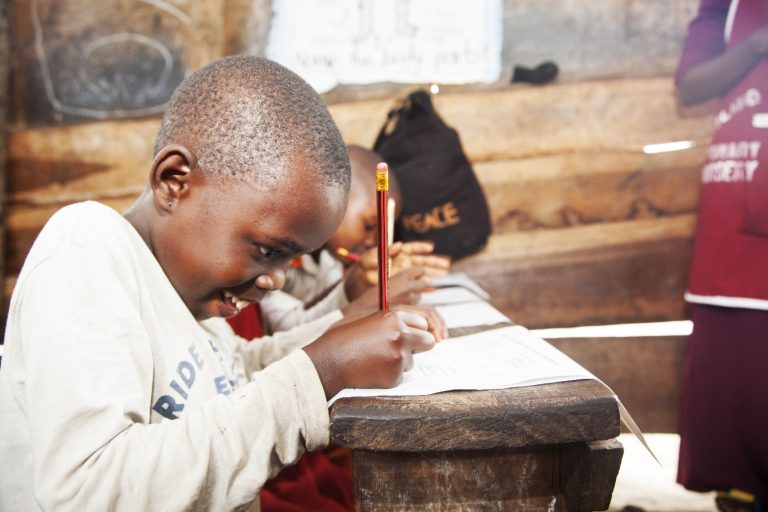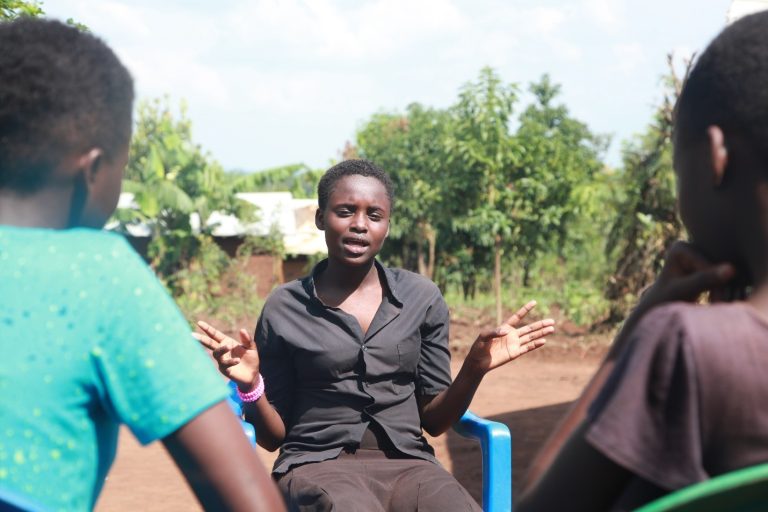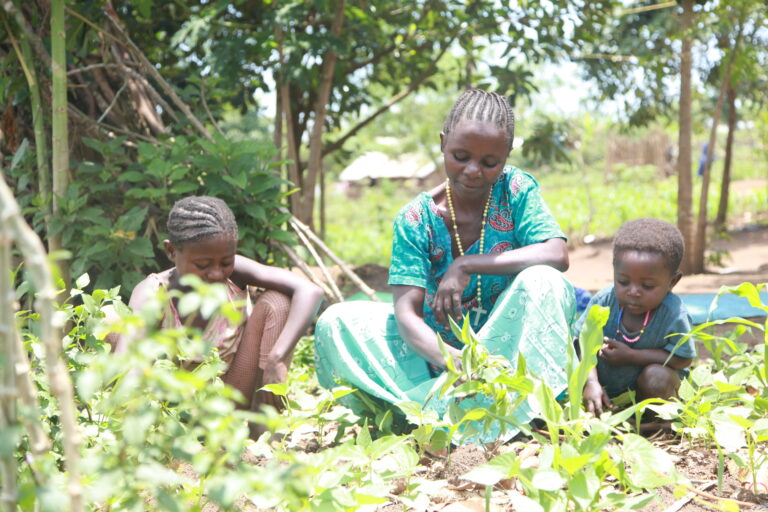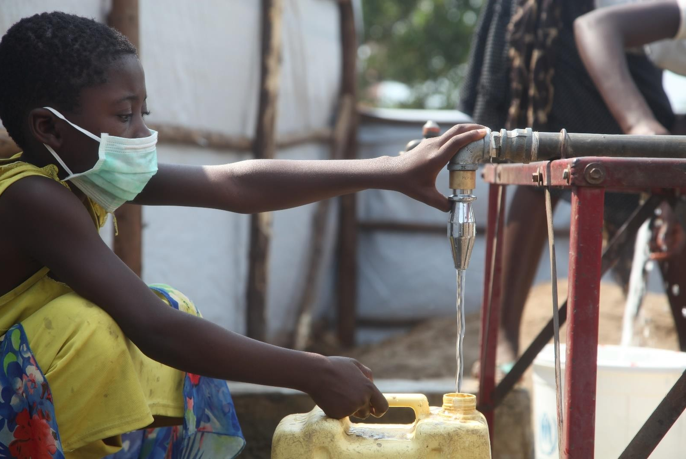Men approach in Kyangwali refugee settlement
Paul Maniragaba John is a 39-year-old father of seven children and a resident of kyangwali refugee settlement in Kikube district. He joined role model men in 2019, he is the chairperson of the role-model men.
Maniragaba traditionally knew that men have their own work, so as women in a society according to the culture of Banyabwisha. After joining the role-model men he understood the importance of gender equality.
“It is unfair for women they are not allowed to eat some foods and parts of meat, women would carry all the luggage while heading to the garden like hoes, pangas, knives, toddlers, food. They do all the home chores. Very unfair.” Maniragaba said.
With funds from the European Commission Humanitarian Aid Office through CARE international under the APEAL IV project, Care and Assistance for Forced Migrants (CAFOMI) uses the role model men approach to engage men and boys in sessions about gender equality and gender socialization which refers to the social construction of what it means to be and behave like a man, boy, woman, or girl (or other gender identity). 120 Men and boys have benefited from the program.
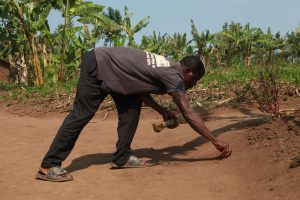
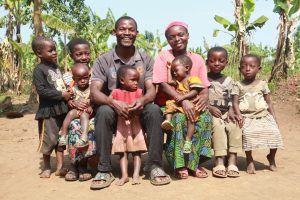
Men are commonly raised to be tough, and emotionally stoic while girls are taught to be fragile, and sometimes inferior or subordinate to men and boys. These gender norms can lead to harmful gender inequalities and perpetuate violence against women and children.
Maniragaba has tried to educate fellow men about gender equality as a way of tackling the issue of Gender based violence (GBV), though he faces a lot of resistance and slow transformation. He also supports in keeping watch on cases of GBV but faces challenges of communicating with the responsible partners, he lacks a phone and airtime so he has to trek a long distance to the centres and partner offices to report the cases.
He organizes weekly meetings with fellow role-model men, to plan and visit different villages especially on busy days like market days to create more awareness through dialogue about gender equality.
“The group agreed to start up a skilling project like shoe making, soap making and tailoring to bring men together and have the opportunity to share ideas about gender equality and a platform to educate more men about the importance of Equality, but also earn a living from the projects. However the idea of a skilling project hasn’t come life yet because they lack the knowledge and capital to start up.” Maniragaba said.
Janine Goretti, 38 years old is Maniragaba’s wife, she says that while she was getting married, she knew she had roles to play as a wife, but her husband surprised her when he began doing some of the home chores, like baby-sitting, sweeping the compound and carrying luggage while going to the garden. She adds that the husband also became developmental after the training, he has begun saving little money and started a goat keeping project, she is optimistic that the future for her seven children is brighter.
Skills formation and training geared towards refugees is a step towards solving issues of GBV, it increases house hold income and provides a platform for them to meet and discuss issues affecting them. It is vital to focus on both agricultural and non-agricultural activities which helps to diversify economic activities in refugee settlements.
By Nicholas Shawn Mugarura, Author is MERL and Communications Assistant at CAFOMI.

